
The Vibrant Heart of Dakar: Plateau
Nestled in the bustling city of Dakar, Plateau is the beating heart of Senegal's capital. This neighborhood is known for its vibrant atmosphere, blending modernity with rich cultural heritage. As you stroll through its streets, you will encounter an eclectic mix of colonial architecture, contemporary buildings, and bustling markets—each corner telling a unique story of Dakar’s past and present. Plateau is home to some of Dakar’s most significant landmarks. The Presidential Palace, with its stunning white façade, offers a glimpse into Senegal’s political history. Nearby, the IFAN Museum of African Arts houses a remarkable collection of artifacts that provide deep insights into the region’s diverse cultures. For those keen on shopping, the Sandaga Market is a must-visit, where you can find everything from local crafts to fresh produce, all while soaking in the lively atmosphere. Food lovers will delight in Plateau’s culinary scene. From street food stalls serving up local delicacies like Thieboudienne (Senegalese fish and rice) to high-end restaurants offering international cuisine, there is something to suit every palate. In the evenings, Plateau’s nightlife comes alive with a variety of bars and clubs where you can enjoy live music and dance the night away.
Local tips in Plateau
- Visit early mornings to avoid the midday heat and enjoy a quieter experience at popular attractions.
- Carry cash as many local markets and smaller establishments do not accept credit cards.
- Dress modestly, especially when visiting religious sites or government buildings.
- Try local street food for an authentic taste of Senegalese cuisine.
- Use reputable taxi services or ride-hailing apps for safe and convenient transportation.
The Vibrant Heart of Dakar: Plateau
Nestled in the bustling city of Dakar, Plateau is the beating heart of Senegal's capital. This neighborhood is known for its vibrant atmosphere, blending modernity with rich cultural heritage. As you stroll through its streets, you will encounter an eclectic mix of colonial architecture, contemporary buildings, and bustling markets—each corner telling a unique story of Dakar’s past and present. Plateau is home to some of Dakar’s most significant landmarks. The Presidential Palace, with its stunning white façade, offers a glimpse into Senegal’s political history. Nearby, the IFAN Museum of African Arts houses a remarkable collection of artifacts that provide deep insights into the region’s diverse cultures. For those keen on shopping, the Sandaga Market is a must-visit, where you can find everything from local crafts to fresh produce, all while soaking in the lively atmosphere. Food lovers will delight in Plateau’s culinary scene. From street food stalls serving up local delicacies like Thieboudienne (Senegalese fish and rice) to high-end restaurants offering international cuisine, there is something to suit every palate. In the evenings, Plateau’s nightlife comes alive with a variety of bars and clubs where you can enjoy live music and dance the night away.
Iconic landmarks you can’t miss
House of Slaves
Explore the House of Slaves on Gorée Island, a UNESCO World Heritage Site that memorializes the transatlantic slave trade and its enduring legacy.

The Museum of Black Civilisations
Discover the essence of African heritage and arts at The Museum of Black Civilisations in Dakar, a cultural treasure trove for every traveler.
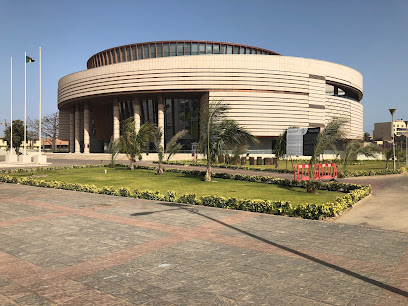
Monument du Millénaire
Discover the Monument du Millénaire in Dakar, a stunning tribute to Senegal's rich history and cultural heritage amidst serene gardens.
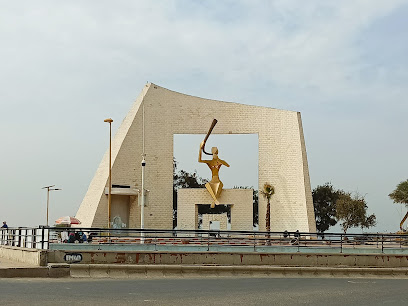
IFAN Museum of African Arts
Discover the rich tapestry of African culture at the IFAN Museum of African Arts in Dakar, featuring thousands of artifacts showcasing diverse artistic traditions.
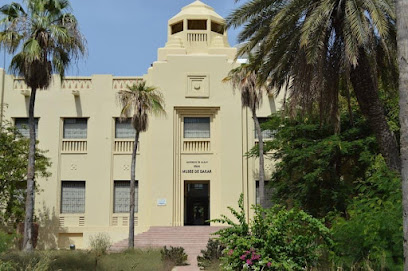
Mémorial Gorée-Almadies
Explore the Mémorial Gorée-Almadies in Dakar, Senegal - a profound monument honoring the legacy of the transatlantic slave trade.
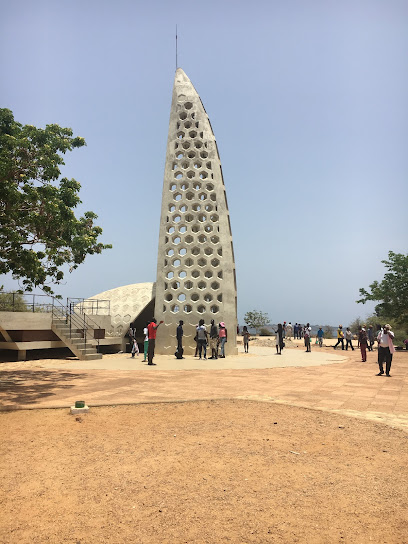
Cathédrale du Souvenir Africain
Discover the architectural beauty and rich history of the Cathédrale du Souvenir Africain in Dakar, a serene symbol of the African diaspora.
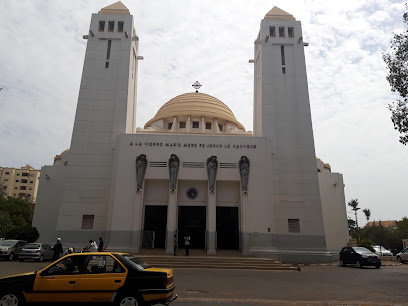
Senegalese Armed Forces Museum
Explore Senegal's military history at the Senegalese Armed Forces Museum, where artifacts and stories of valor come alive.
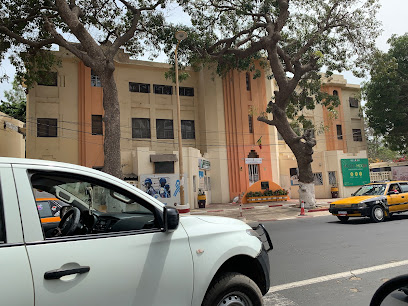
Monument Demba et Dupont
Discover the Monument Demba et Dupont in Dakar, a symbol of resilience and unity that showcases Senegal's rich cultural heritage and history.
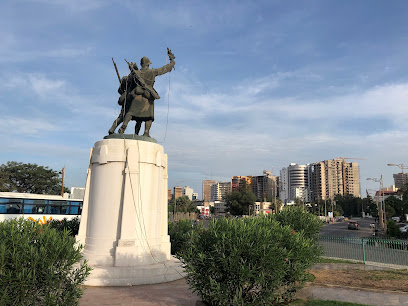
Statue of Emancipation
Explore the Statue of Emancipation in Dakar, a historic landmark symbolizing freedom and resilience, set against the backdrop of Gorée Island's rich cultural heritage.
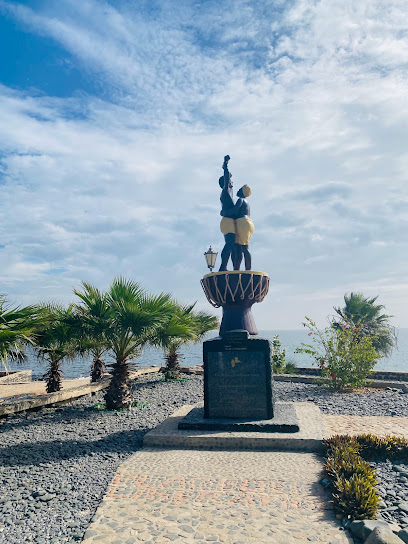
Phare du Cap Manuel
Explore the stunning Phare du Cap Manuel in Dakar, a picturesque lighthouse offering breathtaking ocean views and rich maritime history.
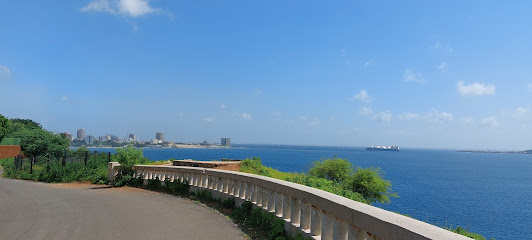
Statue
Explore the historic Statue in Dakar, a monumental tribute showcasing Senegal's cultural heritage and artistic excellence, perfect for travelers seeking rich experiences.
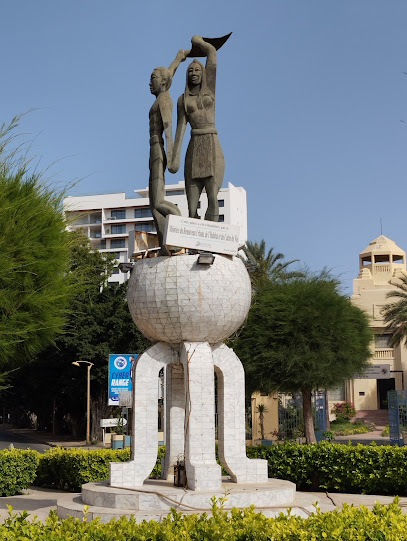
Avenue place 71,Dakar
Explore Avenue Place in Dakar, a historical landmark that showcases the rich cultural heritage and architectural beauty of Senegal.
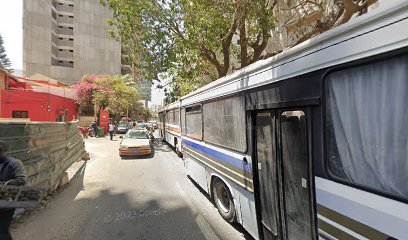
DAKAR
Explore Dakar, Senegal's vibrant capital, where rich history meets modern culture, stunning coastlines, and lively markets await your discovery.
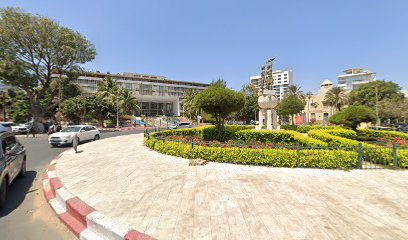
Unmissable attractions to see
Marché Sandaga
Experience the vibrant culture of Dakar at Marché Sandaga, where local crafts and delicious cuisine create an unforgettable market atmosphere.
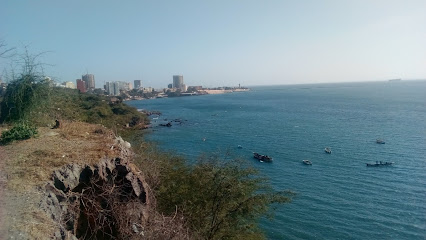
Hann Zoological Park
Discover the vibrant wildlife and lush gardens at Hann Zoological Park in Dakar, a perfect escape for families and nature lovers.
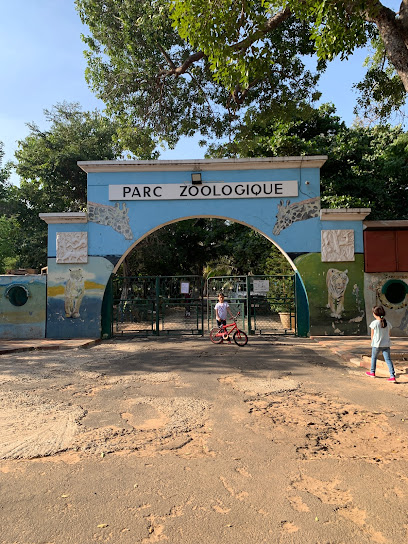
Marché soumbédioune
Discover the vibrant heart of Dakar at Marché Soumbédioune, a bustling market filled with local art, cuisine, and culture.
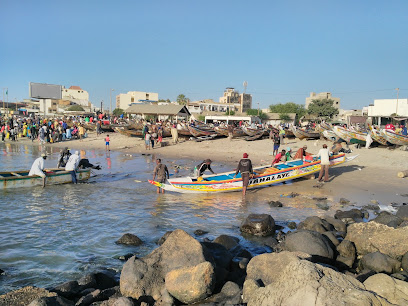
Grand Mosque of Dakar
Explore the Grand Mosque of Dakar, a stunning example of Islamic architecture that embodies the spiritual essence of Senegal's vibrant culture.
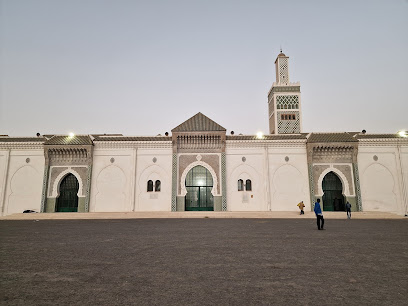
IFAN Historical Museum
Explore the cultural heritage of Senegal at IFAN Historical Museum, showcasing a vast collection of historical artifacts and art from West Africa.
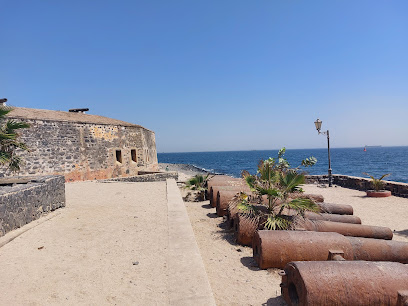
Village Des Arts
Discover the vibrant artistic culture of Senegal at Village Des Arts, a hub for local creativity and inspiration in the heart of Dakar.
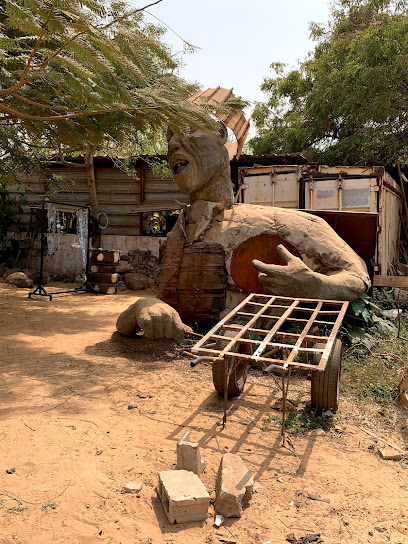
Corniche Ouest
Discover the breathtaking views and vibrant culture of Corniche Ouest in Dakar, a perfect blend of relaxation and adventure along the Atlantic coast.
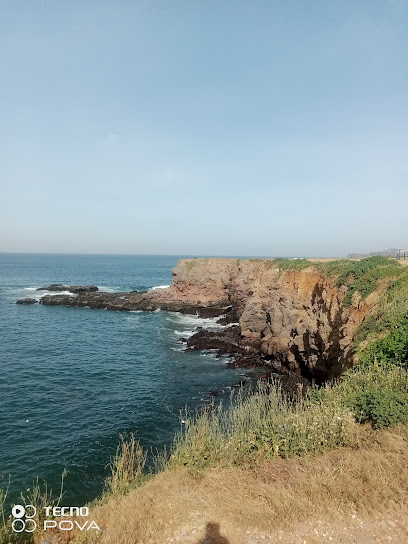
Yoff Fishing wharf
Experience the vibrant local culture, fresh seafood, and stunning ocean views at Yoff Fishing Wharf in Dakar, Senegal.
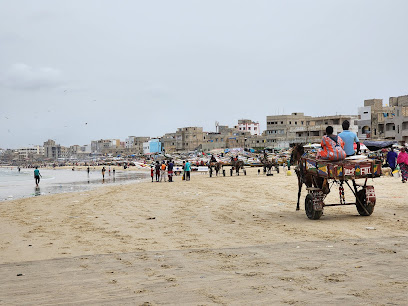
Promenade
Discover the enchanting Promenade in Dakar, where stunning ocean views, local culture, and vibrant sunsets come together for an unforgettable experience.
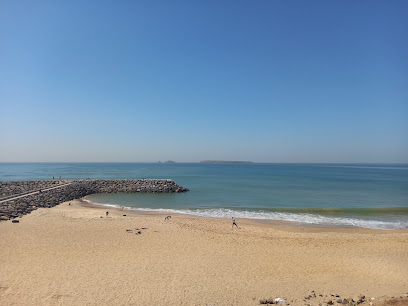
DESTINATION SENEGAL
Explore Dakar: A vibrant capital of Senegal with rich history, stunning coastal views, and a lively cultural scene for every traveler.
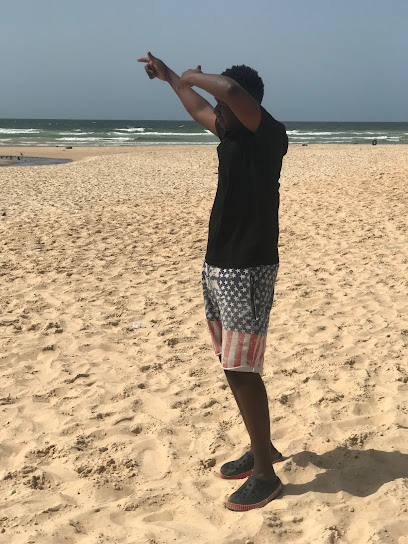
Essential places to dine
Restaurant Le Lagon 1
Discover exquisite seafood and local delicacies at Restaurant Le Lagon 1, where every meal offers stunning ocean views in Dakar.
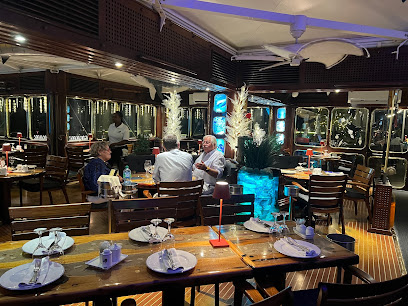
La pampa
Experience authentic Argentinian flavors at La Pampa in Dakar - where culinary passion meets exceptional dining.
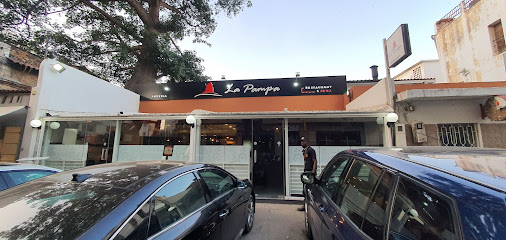
La Parrilla
Experience exceptional Senegalese flavors at La Parrilla - where culinary tradition meets contemporary elegance in the heart of Dakar.
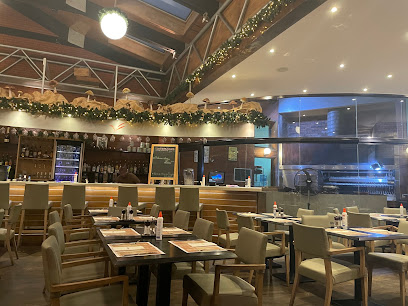
Restaurant Chez Loutcha
Experience authentic Senegalese flavors at Restaurant Chez Loutcha, where tradition meets delightful culinary artistry in Dakar.
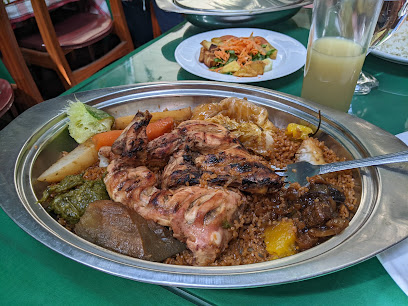
Beluga restaurant
Discover exquisite Senegalese cuisine at Beluga Restaurant in Dakar - where tradition meets contemporary dining.
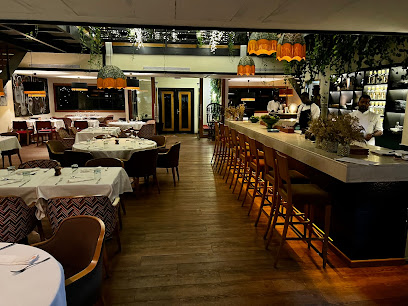
Restaurant Le Dagorne
Discover the vibrant flavors of Senegal at Restaurant Le Dagorne in Dakar - where culinary tradition meets modern flair.
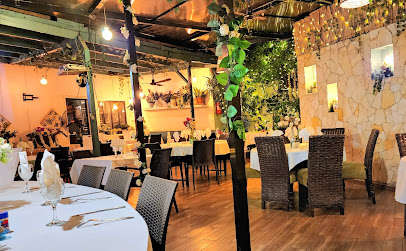
Bidew
Discover the flavors of Senegal at Bidew, where traditional dishes meet modern dining in the heart of Dakar.
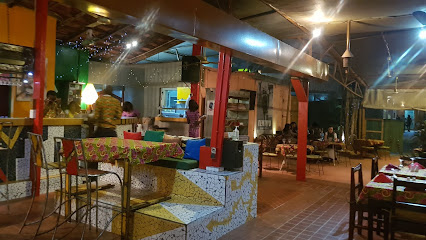
Le Coste
Experience authentic Senegalese flavors at Le Coste, a top-rated restaurant in Dakar offering delightful local cuisine in a warm atmosphere.
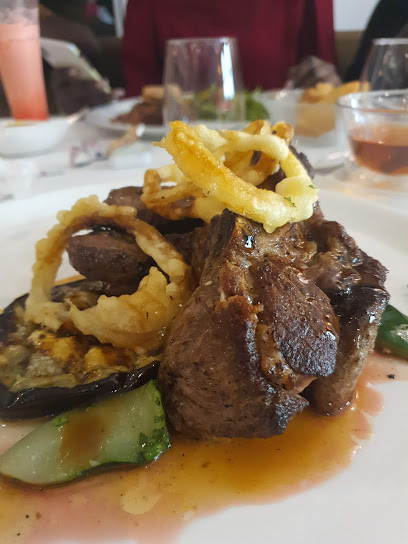
Il Pappagallo
Experience authentic Italian cuisine at Il Pappagallo in Dakar - where local flavors meet traditional recipes.
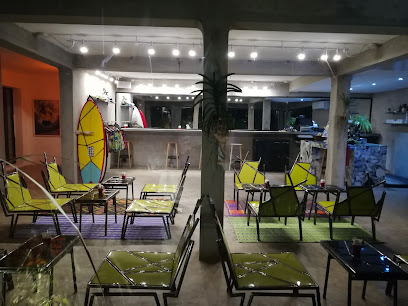
Nostra Restaurant
Discover Nostra Restaurant in Dakar for an authentic Italian dining experience amidst the vibrant culture of Senegal.
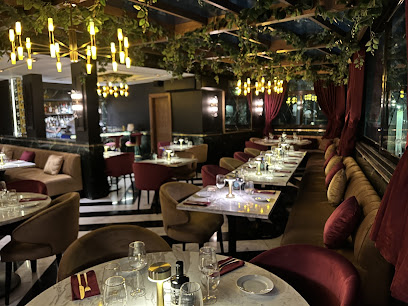
Markets, malls and hidden boutiques
Nahyel - Boutique de Cadeaux Dakar
Discover the charm of Senegalese artistry at Nahyel, a boutique in Dakar offering unique handcrafted gifts and souvenirs.
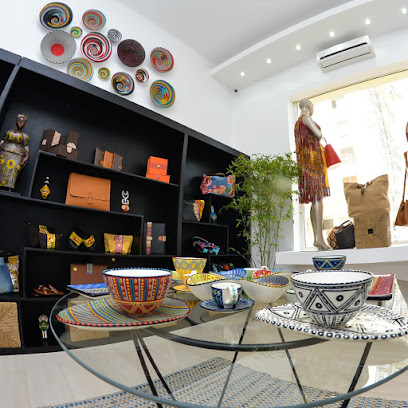
Arka Concept Store
Explore Arka Concept Store in Dakar for unique gifts and local crafts that embody the vibrant spirit of Senegal.
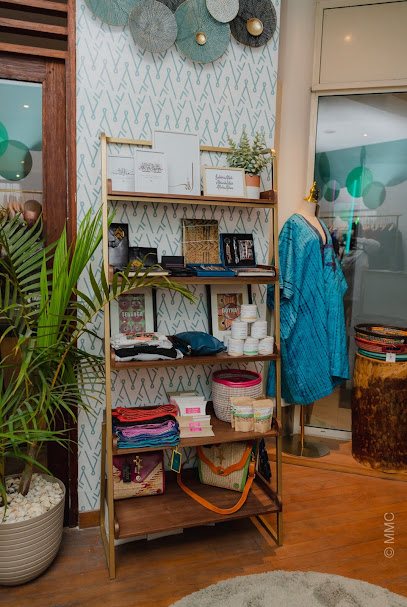
Le Sandaga | Boutique
Discover unique fashion accessories and handcrafted home goods at Le Sandaga, a boutique showcasing Senegalese craftsmanship in Dakar.
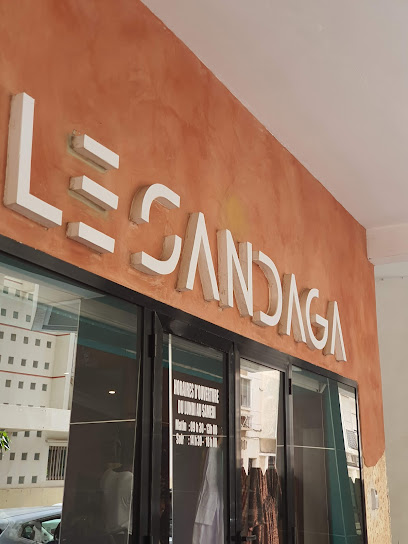
Marche souvenir
Explore the vibrant Marche Souvenir in Dakar, your destination for authentic Senegalese gifts and handcrafted treasures.
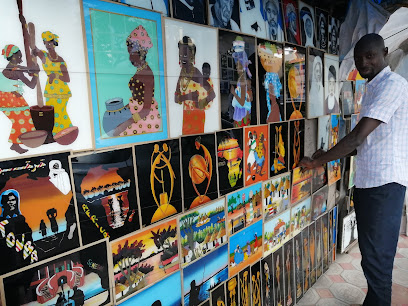
escale beauty shop
Explore the essence of beauty at Escale Beauty Shop, a boutique in Dakar offering local and international beauty products tailored for every need.
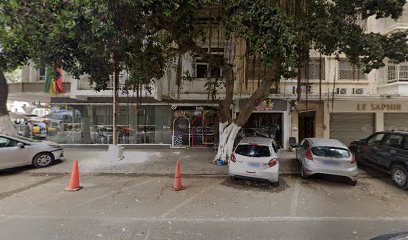
Marse
Discover unique souvenirs and local handicrafts at Marse, a delightful gift shop in the heart of Dakar, celebrating Senegalese culture and craftsmanship.
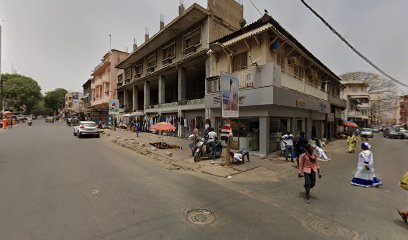
Le Grand Bazar
Immerse yourself in the vibrant culture of Dakar at Le Grand Bazar, where local crafts and unique souvenirs await every traveler.
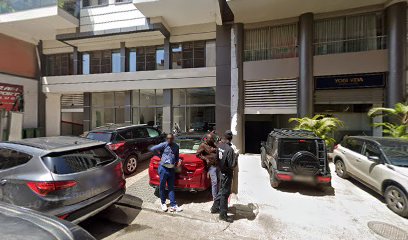
Carrefour des arts
Discover unique handcrafted souvenirs and local art at Carrefour des Arts, a charming gift shop in the heart of Dakar, celebrating Senegalese culture.
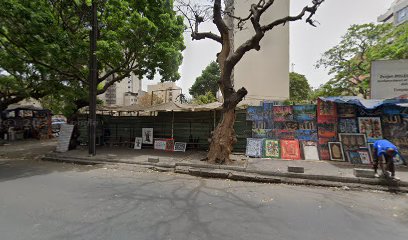
Me and shawn spot
Explore unique handmade gifts and authentic Senegalese crafts at Me and Shawn Spot in Dakar's vibrant Marché Sandaga.
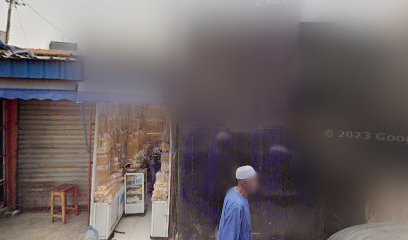
Boutique Tshirt
Explore Boutique Tshirt, Dakar's premier gift shop for unique souvenirs that embody the spirit of Senegalese culture.
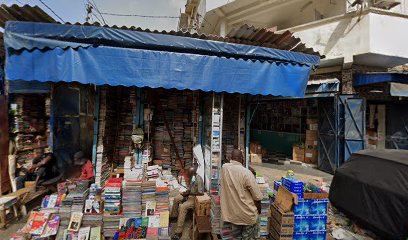
Essential bars & hidden hideouts
Viking Pub
Discover the lively atmosphere of Viking Pub, where local culture meets vibrant nightlife in the heart of Dakar.
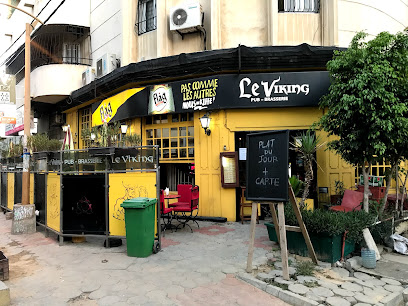
LA CAVE
Experience Dakar's finest wine cellar, La Cave, where exquisite local and international wines meet a cozy ambiance for the perfect outing.
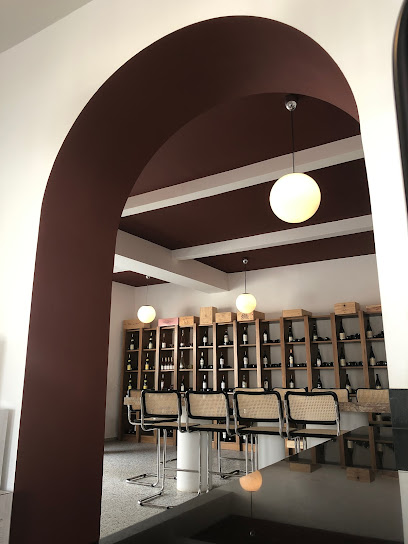
Lumière Bleu
Experience the vibrant nightlife at Lumière Bleu, a lively bar in Dakar's Medina district, offering a rich selection of beverages and local culture.
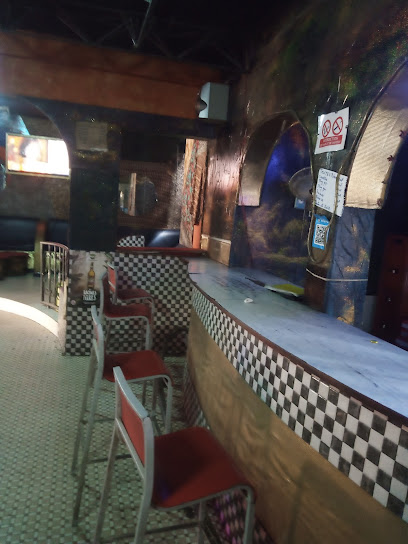
L'Archibar
Discover the flavors of Senegal at L'Archibar, a vibrant restaurant in Dakar offering a unique blend of traditional and contemporary cuisine.
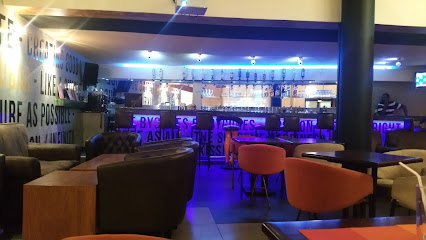
La Véranda
Discover La Véranda in Dakar for a unique lounge experience blending relaxation, vibrant culture, and delightful drinks.
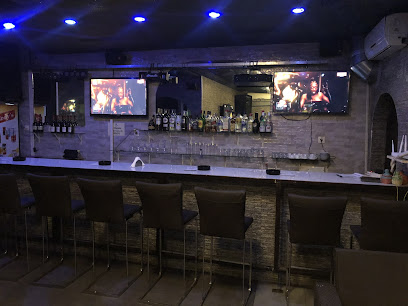
Sky Net Bar
Discover the vibrant nightlife of Dakar at Sky Net Bar, where great drinks and a lively atmosphere await you.
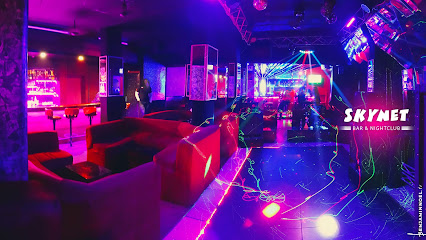
bar
Discover Dakar's nightlife at this charming bar, where local flavors and vibrant ambiance create unforgettable experiences.
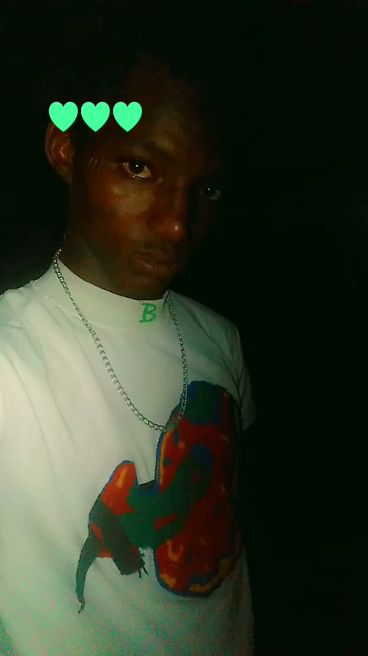
Le Mandingo Teranga
Experience the vibrant nightlife of Dakar at Le Mandingo Teranga, where drinks, music, and culture come together for an unforgettable evening.
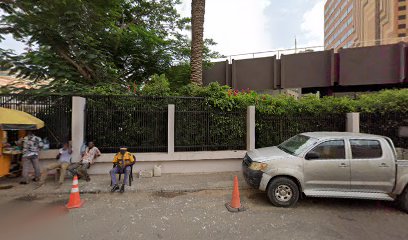
Lun's
Discover the vibrant nightlife at Lun's, a bar in Dakar offering stunning ocean views and a lively atmosphere perfect for socializing and relaxation.
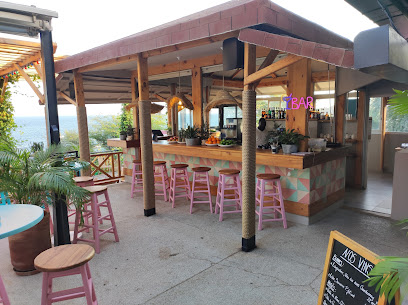
der
Discover the lively atmosphere of der Bar in Dakar, where vibrant nightlife meets delicious cocktails and local music.
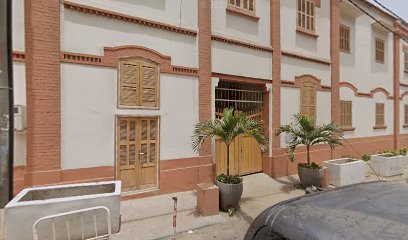
Local Phrases
-
- HelloSalam
[sa-lam] - GoodbyeNoo jamm
[noo jam] - YesWaaw
[waaw] - NoDéedéet
[dee-deet] - Please/You're welcomeJërejëf
[je-re-jef] - Thank youJërëjëf
[je-re-jef] - Excuse me/SorryBa beneen
[ba be-neen] - How are you?Nanga def?
[nan-ga def] - Fine. And you?Jamm. Nopp
[jam nop] - Do you speak English?Bul ko def Englisy?
[bul ko def eng-li-sy] - I don't understandNopp la
[nop la]
- HelloSalam
-
- I'd like to see the menu, pleaseNopp dëkk menu, jërejëf
[nop dek menu, je-re-jef] - I don't eat meatNopp laa jëb lekk
[nop la jeb lek] - Cheers!Nobal
[no-bal] - I would like to pay, pleaseNopp dëgg, jërejëf
[nop deg, je-re-jef]
- I'd like to see the menu, pleaseNopp dëkk menu, jërejëf
-
- Help!Ndank
[ndank] - Go away!Wax dégg
[wax degg] - Call the Police!Nopp noppal
[nop nop-pal] - Call a doctor!Nopp doktër bi
[nop dok-ter bi] - I'm lostNopp laa war
[nop la war] - I'm illNopp laa jëb
[nop la jeb]
- Help!Ndank
-
- I'd like to buy...Nopp dëgg...
[nop deg] - I'm just lookingNopp laa yàbb
[nop la yab] - How much is it?Ñaataa?
[nya-ta] - That's too expensiveWépp naa ñaataa
[wep na nya-ta] - Can you lower the price?Moom nga dëgg ñaataa?
[mom nga degg nya-ta]
- I'd like to buy...Nopp dëgg...
-
- What time is it?Tee nga def?
[tee nga def] - It's one o'clockSama xarit
[sa-ma xa-rit] - Half past (10)Nëbbu jëméef (10)
[neb-bu je-meef] - MorningSuba
[su-ba] - AfternoonRéew
[ree-w] - EveningKër
[ker] - YesterdayNoppal
[nop-pal] - TodayNopp
[nop] - TomorrowNoppal ak jëm
[nop-pal ak jem] - 1Bennëen
[ben-neen] - 2Jox
[jox] - 3Tàttu
[tat-tu] - 4Nëgg
[negg] - 5Juróom
[ju-room] - 6Jëkkër
[jek-ker] - 7Ndar
[ndar] - 8Nëkkar
[nek-kar] - 9Juroom jëkkër
[ju-room jek-ker] - 10Fukk
[fukk]
- What time is it?Tee nga def?
-
- Where's a/the...?Mangi...
[man-gi] - What's the address?Wàllu ndey...
[wal-lu ndey] - Can you show me (on the map)?Moom nga yàgg naa (soppi réer bi)?
[mom nga yag na (sop-pi reer bi)] - When's the next (bus)?Ku metti rekk (dolli)?
[ku met-ti rek (dol-li)] - A ticket (to ....)Dëgg (ci ....)
[deg (ci)]
- Where's a/the...?Mangi...
History of Plateau
-
Plateau emerged as the administrative and commercial heart of Dakar during the French colonial period in the 19th century. Established in 1860, the area was designed to reflect European urban planning principles, featuring wide boulevards and grand colonial architecture. The influence of French culture remains evident in the buildings and urban layout, reflecting the aspirations of colonial governance.
-
During World War II, Plateau became a significant military base for Allied forces, which led to infrastructural developments and an influx of military personnel and supplies. This period marked a shift in the demographic composition of the area, as the local population interacted with foreign troops, bringing diverse cultural influences that enriched the neighbourhood.
-
The late 1950s through the 1960s saw Plateau at the forefront of Senegal's independence movement. As the seat of government, it became a symbol of national pride and cultural renaissance. This period witnessed the establishment of cultural institutions and the promotion of Senegalese art, music, and literature, with the neighbourhood becoming a hub for intellectuals and artists.
-
In the late 20th and early 21st centuries, Plateau underwent significant urban development to accommodate a growing population and modern economic activities. High-rise buildings, shopping centers, and office spaces began to replace some of the colonial architecture, leading to a blend of old and new that characterizes the area today. The neighbourhood continues to serve as a commercial center while preserving its historical essence.
-
Plateau hosts various cultural festivals and events that celebrate Senegalese heritage, such as the Dakar Biennale, which showcases contemporary African art. The neighbourhood's vibrant atmosphere is enriched by street performances, music, and dance, reflecting the rich cultural tapestry of Dakar and its role as a melting pot of traditions.
Plateau Essentials
-
Plateau is the central business district of Dakar and is easily accessible from other neighborhoods. If you're coming from the airport, you can take a taxi or a private shuttle, which will take about 30 minutes depending on traffic. From neighborhoods like Les Almadies or Mermoz, you can also take a taxi or use ride-hailing apps. Public buses (car rapides) and minibuses (Ndiaga Ndiaye) are available from various parts of the city, but be prepared for a crowded experience.
-
Plateau is relatively small and walkable, making it easy to explore on foot. For longer distances within the city, you can use taxis, which are abundant and inexpensive. Bicycles can be rented from local shops, and some hotels offer bike rentals. Public transportation options include car rapides and minibuses, which connect you to other parts of Dakar, though they can be crowded and less reliable.
-
Plateau is generally safe during the day, but like any urban area, it has its risks. Avoid walking alone at night, especially in less populated areas. Be extra cautious around the Marche Sandaga and the outskirts of the neighborhood, which have higher crime rates targeting tourists. Keep an eye on your belongings and be aware of your surroundings at all times.
-
In an emergency, dial 17 for police assistance or 15 for medical emergencies. There are hospitals and clinics in Plateau, including the Hôpital Principal. It is advisable to have travel insurance that covers medical emergencies. For minor issues, pharmacies are available throughout the neighborhood. Always carry a copy of your passport and emergency contact information.
-
Fashion: Do dress modestly, especially when visiting religious sites. Women should cover their shoulders and knees. Religion: Do respect local customs and be mindful of prayer times. Public Transport: Do be patient and respectful; don’t engage in loud conversations. Greetings: Do greet with a handshake and use 'Bonjour' or 'Bonsoir' depending on the time of day. Eating & Drinking: Do try local dishes at street vendors and restaurants. Don’t drink tap water; always opt for bottled water.
-
To experience Plateau like a local, visit the local markets such as Marché Kermel for fresh produce and traditional crafts. Engage with local vendors and try to learn a few phrases in Wolof, as it can enhance your interactions. Don't miss the vibrant nightlife; places like the Place du Souvenir offer live music and cultural events. Finally, exploring the waterfront at the Monument de la Renaissance Africaine provides stunning views and great photo opportunities.
Trending Landmarks in Plateau
Nearby Cities to Plateau
-
Things To Do in Thiès
-
Things To Do in Mbour
-
Things To Do in Bakau
-
Things To Do in Kaolack
-
Things To Do in Serekunda
-
Things To Do in Serrekunda
-
Things To Do in Banjul
-
Things To Do in Lamin
-
Things To Do in Brikama
-
Things To Do in Gunjur
-
Things To Do in Saint-Louis
-
Things To Do in Farafenni
-
Things To Do in Soma
-
Things To Do in Janjanbureh
-
Things To Do in Canchungo










